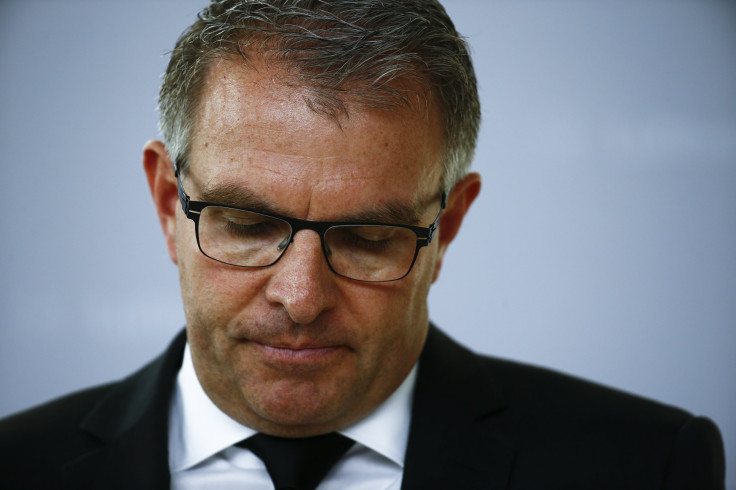Lufthansa Press Conference: Andreas Lubitz Had 'Interruption' To Pilot Training, CEO Carsten Spohr Says

Andreas Lubitz, the Germanwings co-pilot accused of deliberately crashing Flight 9525 in the French Alps Tuesday, was subject to a monthslong “interruption” while training to become a pilot, Lufthansa chief executive Carsten Spohr said in a news conference Thursday. But Spohr said both the flight commander and Lubitz had passed all required tests and were deemed fit to pilot the aircraft.
Lubitz began training to become a Lufthansa pilot in 2008 and spent time working as a flight attendant, Spohr said. The 28-year-old native of Montabaur in western Germany's Rhineland spent 11 months on a waiting list and began work as a pilot for Germanwings, a Lufthansa subsidiary, in late 2013. At some point during his training, Lubitz went on hiatus for a period of “months,” Spohr said in Cologne.
“Six years ago there had been an interruption to his training. We checked his skills, his competence and he went back to training school. After that he was successful. He went through all of that with flying colors,” Spohr said. “He was fit in all areas, 100 percent.”
Spohr described interruptions to pilot training as a routine occurrence and declined to provide specifics on Lubitz’s case. Trainees are required to give an explanation if they take a break from training, but German law prevents employers from obtaining their employees’ medical history.
“The interruption lasted a few months. This is something that can easily happen in our schools. Unfortunately I cannot give you any further information,” Spohr said.
Lufthansa pilots go through an extensive battery of physical and psychological testing, Spohr said. Instructors spend time with trainees to get a sense of their psychological fitness, but Lufthansa’s protocol does not call for interviews with a potential pilot’s friends or families. Moreover, Spohr said Lufthansa routinely checks on pilots’ ability to fly, but that psychological exams are not implemented once training ends.
French prosecutor Brice Robin, who heads the criminal investigation into the Germanwings crash, said an analysis of the plane’s cockpit recorder uncovered evidence that Lubitz deliberately crashed the aircraft when the flight commander left the cockpit to take a bathroom break. The flight commander could be heard “trying to smash the door down,” a French military official said.
“We are forced to come to the conclusion that the flight was deliberately crashed. The co-pilot, according to the audio recordings, took advantage of the momentary absence of the commander from the cockpit and then prevented him from coming back into the cockpit,” Spohr said.
Lufthansa and Germanwings aircraft have armor-plated cockpit doors, designed after the Sept. 11, 2001, attacks to render entry into the cockpit impossible without approval from those within. If a pilot fainted or was otherwise incapacitated while his co-pilot was out of the cockpit, an access code can provide entry. But anyone within the cockpit can block the access code, Spohr said. He declined to confirm if Lubitz took that measure, but agreed that Lubitz deliberately crashed the aircraft.
Spohr added that Lufthansa has provided financial support to family members of the crash’s 150 victims and expressed shock over the incident.
“This is the worst possible time, the worst possible moment, the darkest chapter in the history in our airline,” Spohr said. “And yet we have full confidence in our pilots, so this is totally incomprehensible.”
© Copyright IBTimes 2025. All rights reserved.






















